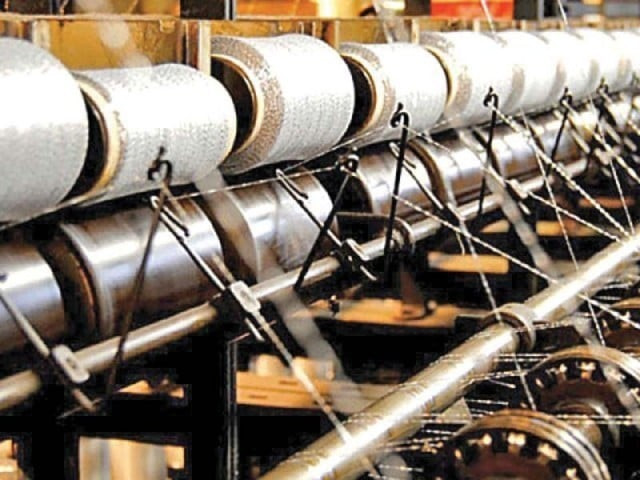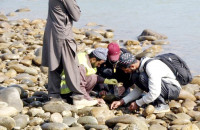Textile millers demand restoration of EFS
Urge govt to remove sale tax disparity between local, imported supplies

The All Pakistan Textile Mills Association (Aptma) has called for restoring the Export Facilitation Scheme (EFS) to protect long-term sustainability of Pakistan's textile exports and create room for negotiations with the US before the 90-day suspension of reciprocal tariffs comes to an end.
"The government should immediately address the sales tax disparity between local and imported supplies for exports and create a level-playing field," Aptma Chairman Kamran Arshad said at a press conference on Friday. Pakistan Cotton Ginners Association Chairman Dr Jassu Mal and former chairman Sohail Harral also spoke.
The first best solution was to restore EFS to the June 2024 position with zero rating for local supplies, they said. However, the International Monetary Fund has not accepted it. Under this scenario, according to the industry leaders, the only viable alternative is to prepare a negative list of high-risk imports under EFS, including all types of yarn and cloth.
Under the FY25 budget, sales tax exemption on local supplies for exporters was removed, while imports of the same raw material and inputs were exempted from duty and sales tax. This policy shift has caused a significant disadvantage for local suppliers and is severely impacting the sustainability of the domestic industry and value chain, particularly small and medium enterprises, they said.
Although 18% sales tax refund is technically available on local inputs, the refund process remains plagued with lengthy delays, partial disbursements and high administrative costs.
Owing to this sales tax disparity, exporters prefer imported inputs, pushing local suppliers out of business. During FY25, imports of raw cotton, yarn and greige cloth are expected to increase by $1.6 billion whereas export growth during the same period is projected to reach $1.5 billion.
Punjab offers incentives
Meanwhile, the Punjab government assured Aptma of offering unprecedented incentives, which would be better than any other country, to woo Chinese investors to relocate operations to Pakistan in the wake of current tariff war.
"A mechanism is being evolved to ensure no change in policy irrespective of which government comes in or goes out," Najaf Iqbal Syed, CEO of the Punjab Board of Investment and Trade (PBIT), said during a meeting with textile exporters in Lahore. He declared that the Punjab government would ensure full-scale security for the Chinese investors working in the province.
He supported the idea of establishing and operating garment parks on the pattern of 'Plug and Play Model'.






















COMMENTS
Comments are moderated and generally will be posted if they are on-topic and not abusive.
For more information, please see our Comments FAQ